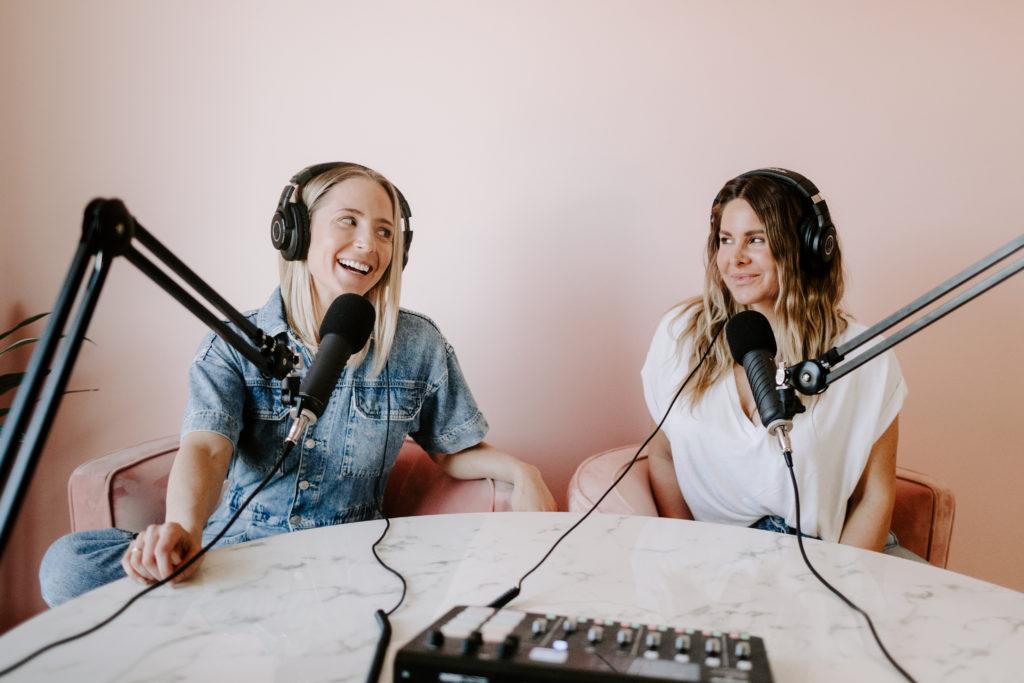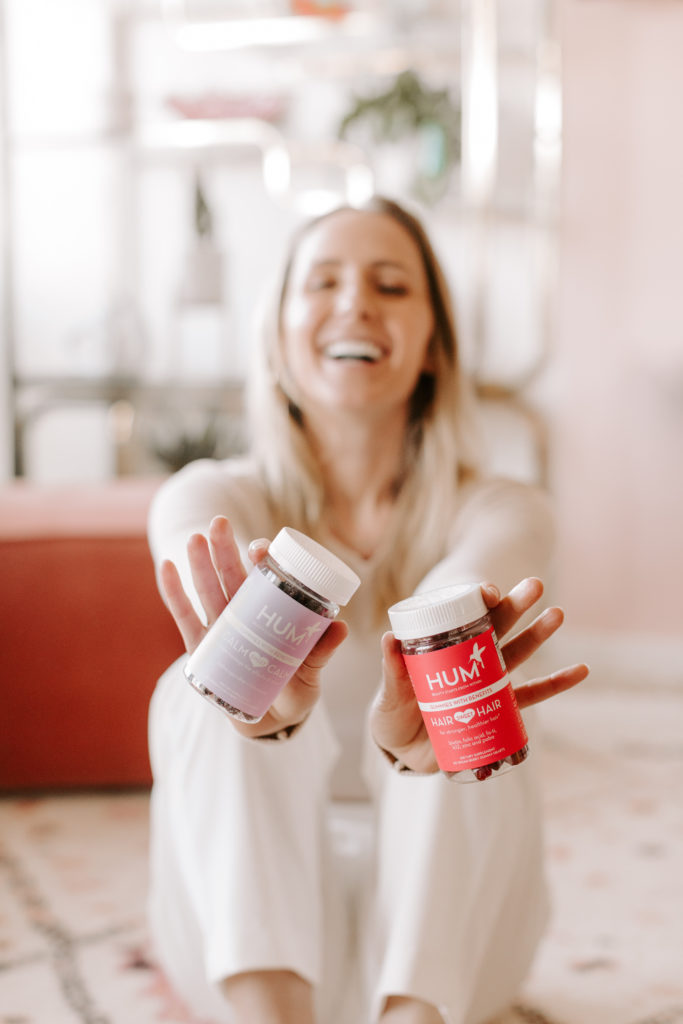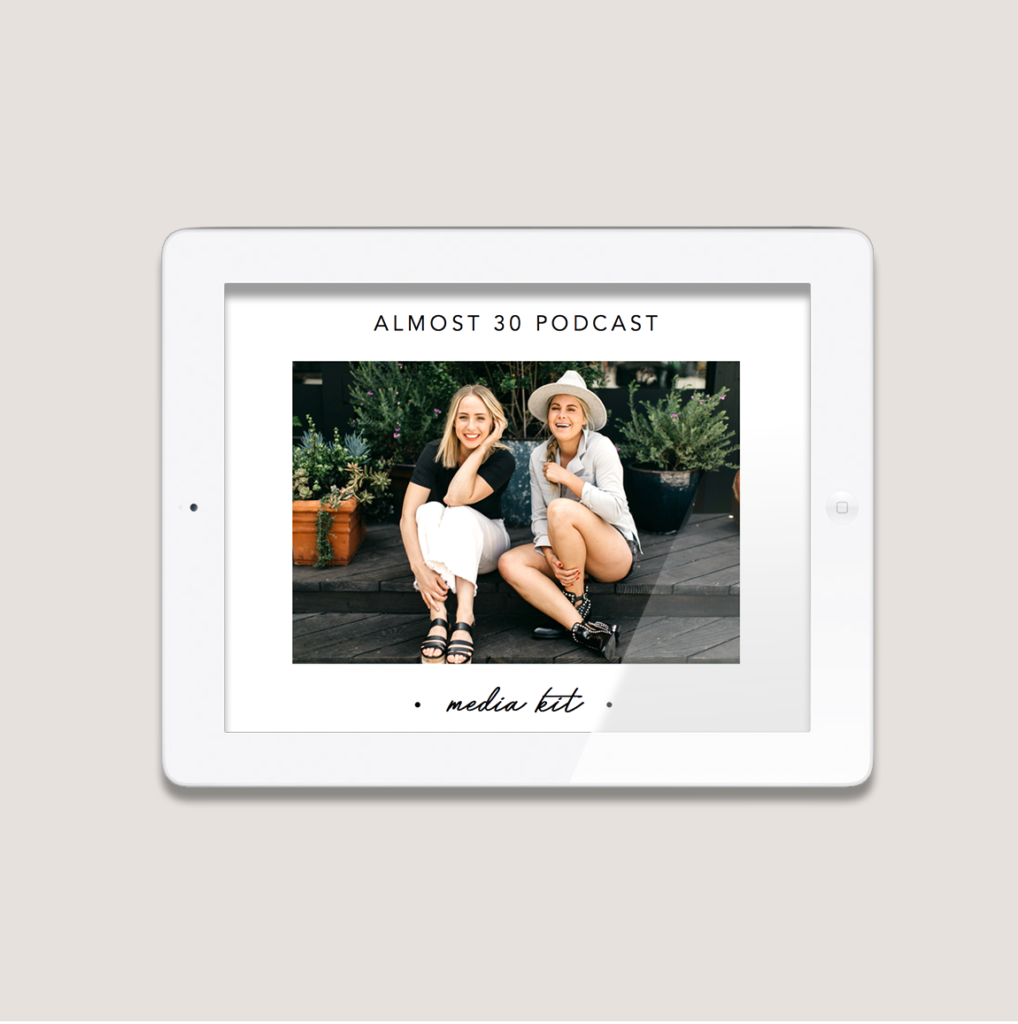Summary:
Podcast sponsors are essential to monetize your podcast and bring in that money, honey! Even though it may seem like an intimidating process, you totally can attract your dreams sponsors by following these 6 steps.
In this post, you’ll learn:
- What podcast sponsors are and why you need them
- How to prepare your media kit for your podcast sponsors
- How to research the best contacts for your ideal podcast sponsors
- How to send the pitch email to your potential podcast sponsors
- How to set up an initial call with your potential podcast sponsors
- How to follow up to seal the deal with your podcast sponsors

As podcasters, one of the questions we hear all the time is, “Can you really make money off podcasting?” And the answer is ABSOLUTELY YES. And we are living, breathing, money-making proof!
One of the most important ways to monetize your podcast is working with aligned podcast sponsors on ads, social media, and editorial integrations.
Podcasting has been around for more than a decade, but in the last few years, the industry has seen explosive growth. Podcast advertising revenues are expected to surpass $1 billion in 2021 (Source: eMarketer, 2019).
In 2018, marketers spent $479 million to advertise on podcasts in the U.S., a 53% increase from $314 million in 2017 (Source: Internet Advertisement Bureau). How amazing is that?
The first step to monetize your podcast and land your dream sponsors is pitching your podcast and brand. Pitching is an art form, so we at Almost 30 have put together 6 easy-to-follow steps to reach out to and attract the right partners for you.
But before we jump in, let’s go over the basics…
What is a podcast sponsor and why do you need them?
Think about when you listen to a podcast and the host or hosts take a break to tell you about a product or service they love. That’s a podcast sponsor!
Podcast sponsorships are one of the most effective ways to monetize your podcast. It is where we make the majority of our revenue and is an essential part of the podcasting business.
Podcast sponsorships are so valuable because listeners often act on them. According to a 2020 Buzzfeed article, “Nearly two-thirds of podcast listeners take action based on ads, whether they make a purchase or search for information based on your recommendation.”
Your audience trusts you to recommend high quality and valuable products — and that’s why you should choose your podcast sponsors carefully. A podcast sponsor is an extension of your brand and should represent your values.
While it’s tempting to say “yes” to every opportunity that comes your way, we’ve learned to be discerning and say “yes” only when it’s the right fit. It’s important to know and value your worth and only work with partners who recognize and reflect that.

6 Steps To Pitching and Getting Podcast Sponsors
1. Evaluate your numbers
Hate to break it to you, but numbers matter. Before making a decision to reach out to sponsors, audit your podcast download numbers, audience engagement on social media, email subscribers, website clicks — whatever data you have to show potential sponsors.
Showing your value with data is key to convincing future partners the relationship will be mutually beneficial. As a general rule, we recommend having at least 10K downloads per episode before reaching out to sponsors.
However, there are always exceptions! You can also consider your social media presence, credibility as a professional in your area of expertise, growth rate, etc. into the mix — so don’t be afraid to get creative and be your own biggest fan!
2. Prepare your media kit and website for your podcast sponsors
Think of your media kit as a modern-day business card! Your media kit will be used for potential guests, press, and partnerships, which is why it’s important to make sure it is ready to be pitched to aligned sponsors.
Your media kit could be guests’ or potential sponsors’ first exposure to your podcast. A smartly-made media kit opens the door to monetization opportunities with your podcast and helps you on your way to making podcasting your full-time gig!
That’s why this should be one of the first things you put together after you establish your podcast.
It’s essential to have all of the information a brand would request from a potential partner, aka your podcast!
This is what you should include in your podcast media kit:
- A short bio about you and your podcast
- Professional photos and logos
- Statistics on your audience
- A list of topics discussed on your podcast
- Info on which platforms to find your show
- Press or notable achievements
Looking for a podcast media kit template? We got you!
You can find the Almost 30 Media Kit Template here. We share exactly how to lay out your media kit.
Now that you know what to include, here’s when you should utilize your media kit:
- Include it in press or PR pitches
- Share it with podcast advertising agencies for help with facilitating sponsorships
- Send it to brands you want to align with for sponsorship opportunities
- Use it as a credibility builder for when you’re pitching yourself for any speaking events
Your media kit will likely pique people’s interest in your website and social channels, which is why it’s so important to make sure both are established and high quality.
Your website shows the world that you have an air of professionalism and are really taking this seriously. A clean, clear, and easily navigable website allows your listeners, potential guests, and sponsors to get a feel for who you are and what you’re about.
What to include on your podcast website:
Make sure you have a homepage that visually and verbally gives visitors a clear picture of what your podcast is about. It’s also worth including an “About The Podcast” and “The Mission” page or section. You’ll also want to have a space for the host’s bio, episodes and show notes, contact info, sponsorships, and event links (if applicable).
Professional-looking images are important to include on your podcast’s website. Great photos on your website say, “I’m serious about this and I’m investing in my brand.” Your photos should feel natural to you and the vibe of your podcast.
Think about certain scenes that are already a part of your daily life. Are you a fitness podcast? Incorporate pics of you in the gym. Nutrition podcast? Get cooking and snap pics in the kitchen.
Bonus tip: We recommend using Squarespace, ShowIt, Wiz, or WordPress to create your site!
3. Brainstorm and research your ideal podcast sponsors
The sponsors you choose to work with are an extension of your podcast and your brand, so they should be authentic to you and bring value to your audience!
Although you can technically begin partnering with a brand at any time, we recommend focusing on building a solid product and audience trust before beginning to take on sponsors. You don’t want your monetization efforts to backfire by starting too early and not being able to deliver the results you promised.
Ask yourself these questions to find out if you’re ready to monetize your podcast:
- Does my audience consistently provide feedback through reviews and/or social media?
- Do my listeners ask for or follow my personal recommendations?
- Do I have a good idea about what my audience wants or needs from me?
- Are there products or services that I organically mention or talk about on the podcast that my audience would be interested in purchasing?
- Have I established mutual trust and respect with my audience?
If you answered yes to these, you may be ready to monetize!

Finding sponsors that you love and trust will make it so much easier to speak authentically about on your podcast. Plus, if you wouldn’t personally use a product, why would you recommend it to your audience?
To find the best podcast sponsors and partners, we recommend making a list of 10-20 brand you use in your daily life. Think about your routines. What toothpaste do you use? What sheets do you sleep in? What is your favorite tea or coffee brand?
It may seem challenging, but if you take stock of your brand choices in your house, you can easily find 10-20 brands that you can pitch to work with.
Here are some other ways to find sponsors you and your podcast align with:
- Attend events in your city or town and take notice of who is sponsoring. Set up meetings with local brands and business owners.
- Listen to podcasts in your target demographic to hear what brands are already open to sponsorships.
- Engage with brands on social. Start the conversation by tagging them, sharing their product, or commenting on their posts.
- Ask for a referral from friends or other brands you’ve worked with.
Once you have a few brands in mind, find their marketing contact by reaching out via DM, looking on LinkedIn, or reaching out to their general contact and asking to get directed to the right person. Just remember to research the brand’s mission and target demographic. Doing your homework will set a foundation for mutual trust and appreciation for the future.

4. Send the pitch email to your potential podcast sponsors
Before you draft an email, think about how pitching it is going to work in your regular workflow and calculate how much time you can set aside for it. You may want to put time on your calendar each week that’s solely devoted to pitching. Again, make sure your media kit is ready to go!
When you find the proper contact, draft your pitch in an email.
Your pitching email should include:
- Who you are. Write a short blurb on your podcast’s mission and why it aligns with the brand.
- Who you reach, including your target audience and download numbers.
- Links to your media kit, website, and any relevant examples you want to showcase.
- A closing statement — let them know you’re happy to send more info or hop on a call to continue the conversation.
You can also include an anecdote about your own experience with the brand and why you love it to make your pitch warmer and more personal!
5. Set up an initial call with your podcast sponsors
This is where you’ll get deeper and establish a relationship. The flow of the call should go something like this:
- Introductions. Express briefly why you love the brand (a personal anecdote of your experience with the brand helps deepen the connection). Then give a concise description of your show, the demo, and any recent milestones on the charts or press mentions.
- Set the agenda for what you’re going to discuss.
- Ask them what their goals are for advertising (brand awareness, direct sales online, etc.)
- Explain how you’ll help them achieve their objectives.
- If they’re new to podcast sponsorship, walk through the process of advertising on a podcast.

6. Follow up to seal the deal with your podcast sponsors
Send a follow-up email thanking them for the call, recapping everything you discussed, and providing any additional information. You can also add a personal touch by sending a written thank you note or voice memo.
Once you have sealed the deal you’ll need to create a contract for both parties. We use Hello Sign for this! Next, you’ll want to send an invoice for payment. We use Honeybook and love them because you can handle everything you need for your business (invoiving, project management, online paymanets) all in once place.
Finally, you’ll want to provide them with a partnership form so you can gather all the necessary info for the ad spot. We use Google Sheets to organize this. The expectations and deliverables for each ad should be clearly laid out and organized so you can always reference them. This is your responsibility, not the brands.
The partnership form should include:
- Their brand name
- Logo
- Timeline for the ad spot
- Talking points for the ad spot read
- Call to action for the listener
- Do’s and don’ts of the ad spot read — are they looking for something more conversational vs. a straight copy read? Any buzz words to hit or avoid?
- Contact name of the person on the brand team
- Link to a page if they’re creating a specific landing page for the partnership
- Discount code
- Will they be sending product for you to experience and try? If so, include a shipping address in the document.
- Campaign wrap-up — data and insights from Libsyn and social media posts to show how the campaign performed.
Remember, your sponsors are your partners. It’s important to build strong relationships with them and the keys to these relationships are communicating clearly and consistently, defining expectations, and inviting collaboration and feedback.
At the end of the day, both parties in these partnerships are human, so it’s essential to recognize this and treat everyone humanly and respectfully.
Congratulations! You now have everything you need to pitch to your dream podcast sponsors. We are so excited for you! It’s time to hustle and get creating your media kit, website, and hyping your new podcast.







Bedankt voor informatie om sponsors te vinden.